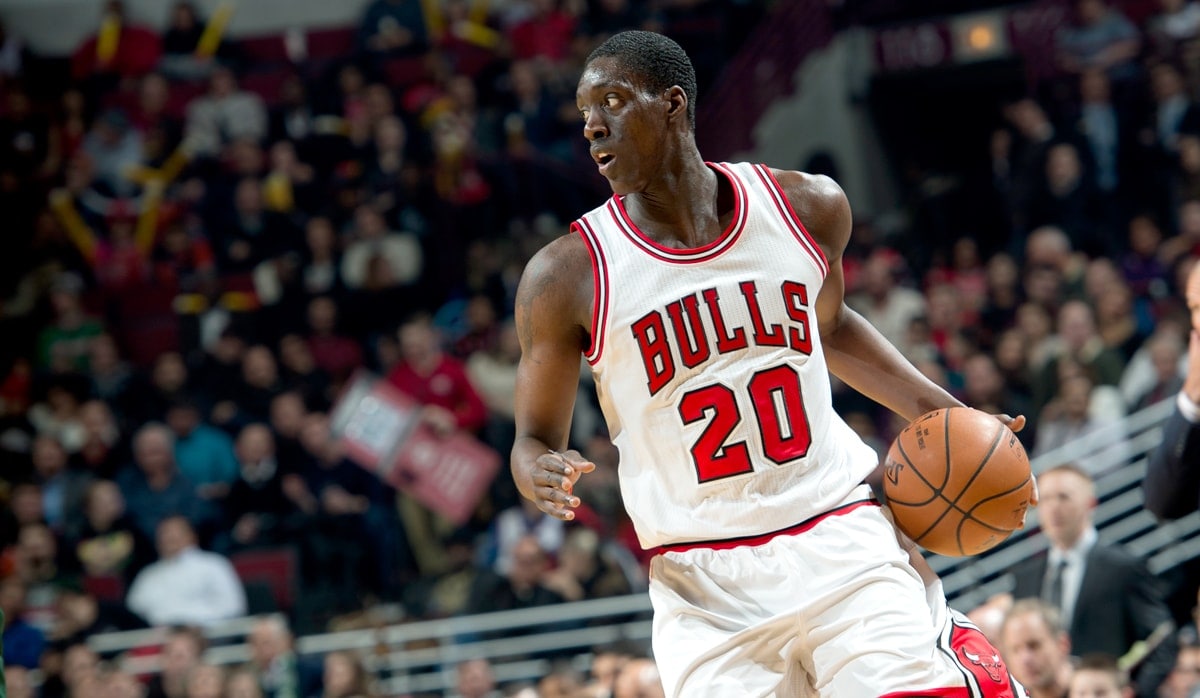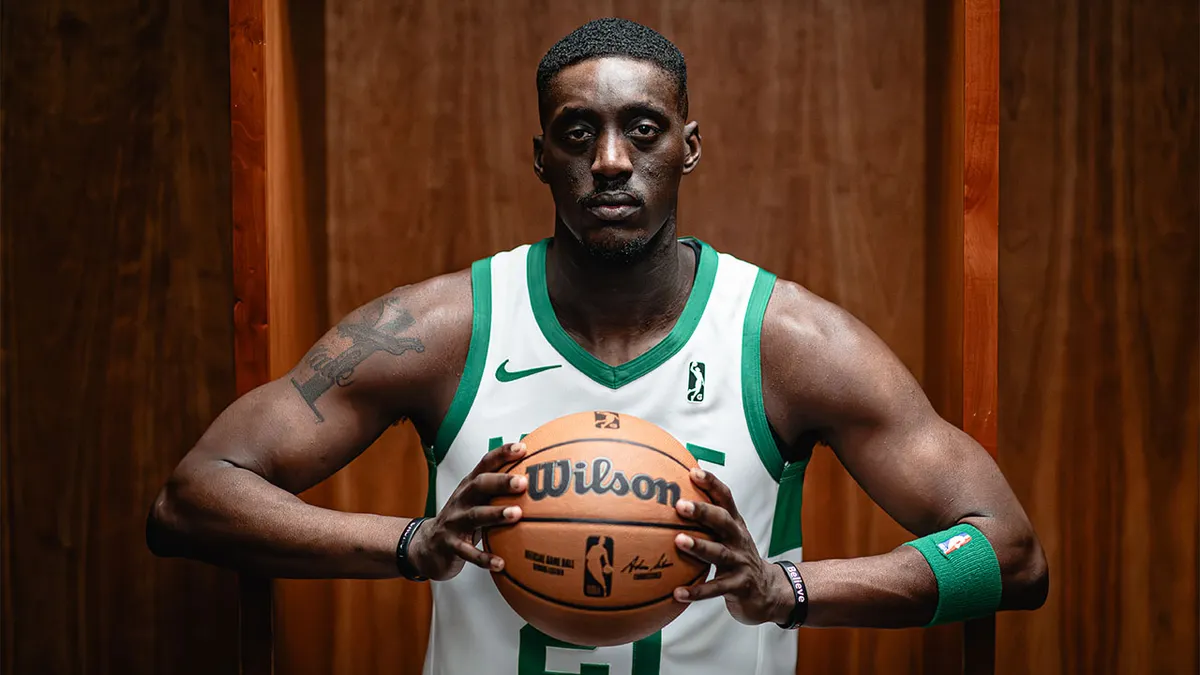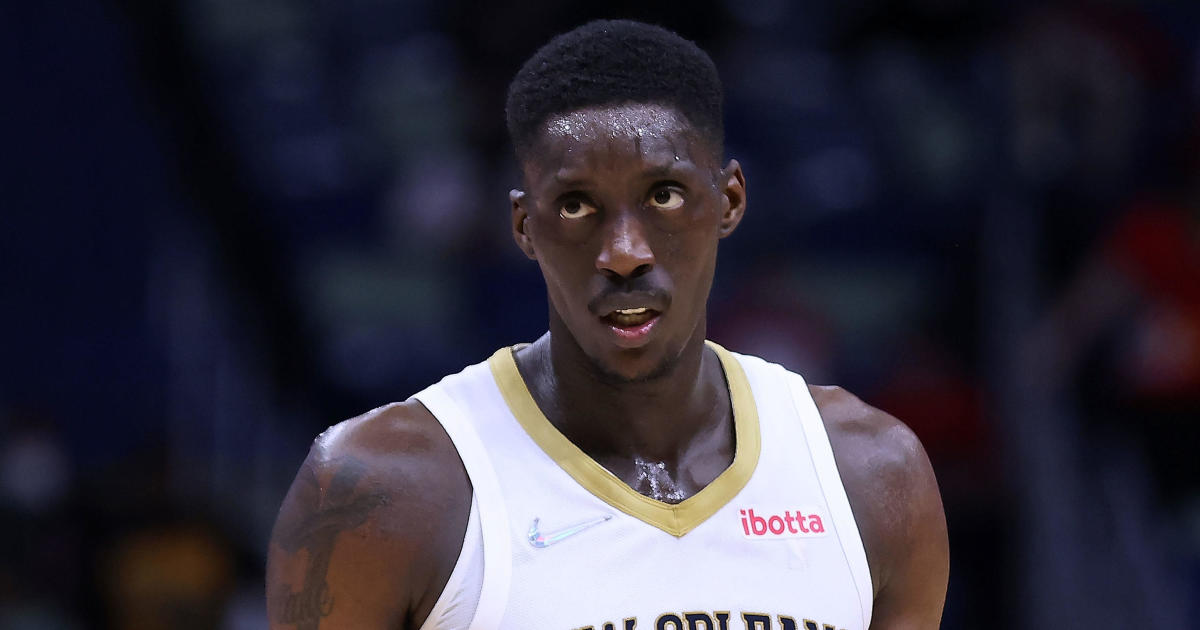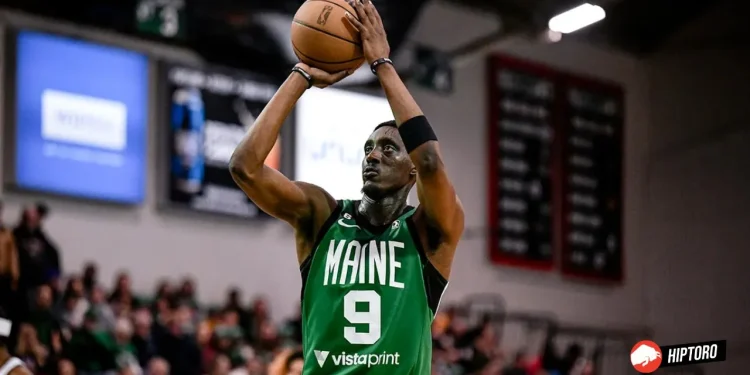In the high-stakes world of the NBA, where talent and strategy play out on the hardwood, the story of Tony Snell offers a poignant reminder of the personal battles players face off the court. As the NBA trade deadline looms, teams scramble to bolster their lineups, yet Snell, a veteran forward with a decade of experience, finds himself in a unique predicament. The 32-year-old’s quest is not for glory or record-breaking feats but a matter of securing a future for his family, shedding light on the side of professional sports often overshadowed by the glitz of game night.

Tony Snell: A Father’s Fight for Family
Currently plying his trade with a G-League team affiliated with the Boston Celtics, Tony Snell’s ambition transcends the usual athlete’s drive for success. The father of two, whose sons Karter and Kenzo are on the autism spectrum, is racing against time. The NBA’s retirement program offers health benefits to players who have contributed a decade to the league, a milestone Snell is desperately trying to reach not for himself but for the well-being of his family.
The revelation of Snell’s situation sparked a wave of support, most notably from NBA legend Charles Barkley. On “Inside the NBA,” Barkley passionately advocated for Tony Snell’s cause, emphasizing the financial and emotional toll of raising children with autism.
“I hope one of you guys sign Tony so his two autistic kids can get great medical care,”
Barkley implored, highlighting the NBA’s familial ethos and the unexpected hurdles life throws.

The Complex Web of NBA Regulations for Tony Snell
Despite the goodwill and intentions to assist Tony Snell, the road to securing his place in the league is fraught with legal and bureaucratic hurdles. Yahoo Sports sheds light on the crux of the issue: the collective bargaining agreement’s stipulations. For Snell to qualify for the retirement benefits, he must be part of an NBA roster for at least 50% of the season’s games, a deadline that ominously approaches.
This requirement places teams in a difficult position. While some have considered offering Tony Snell a 10-day contract to inch him closer to his goal, the stipulation necessitates his presence on a roster by February 2nd for the remainder of the season—a commitment that intertwines legal complexities with the spirit of assistance.
Tony Snell asking for a handout when his wife is out in Paris spending 30K on handbags and he’s made 50M+ in his career is a JOKE . Get real buddy . pic.twitter.com/OJ3GZgdpYQ
— Aaron (@Coach_Them_Up) February 4, 2024
Jake Fisher of Yahoo Sports articulated the dilemma, emphasizing the legal implications of circumventing collective agreement terms. Adjusting the rules for Snell, however noble the cause, risks opening a “Pandora’s box” of legal challenges and precedents that could reverberate far beyond a single player’s circumstance.
The Heart of the Matter: Tony Snell
Tony Tony Snell’s journey is a stark reminder of the personal challenges that professional athletes face, often obscured by the spectacle of sport. His story is not just about basketball but a father’s determination to secure the best possible future for his children. It highlights the intersections of sports, law, and human compassion, where the rulebook meets real life.

As the NBA trade deadline passes and teams make their final moves, the spotlight on Tony Snell’s situation fades, but the issues it raises linger. The balance between strict adherence to legal agreements and the league’s proclaimed family values is delicate, posing questions that extend far beyond the court.
In the end, Snell’s plight underscores the complexity of professional sports—a world where victories are not only measured in points scored but in battles fought for those we love. The NBA prides itself on being more than a league but a family. Yet, as Tony Snell’s story reveals, the path to fulfilling that ideal is fraught with challenges that demand more than just a game plan.










